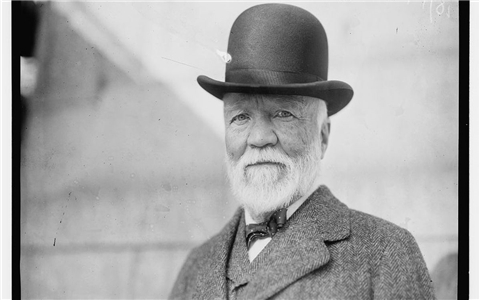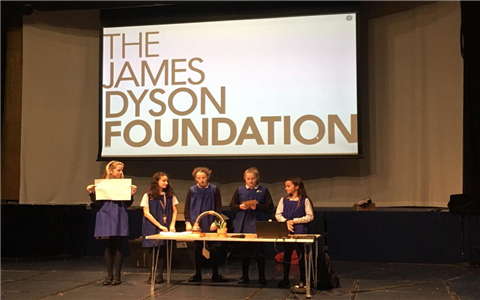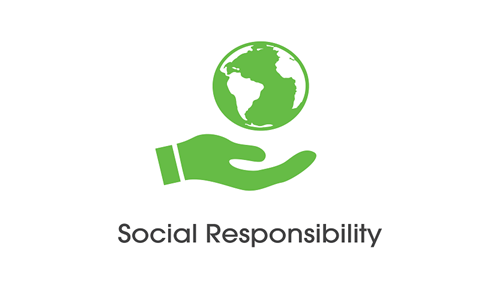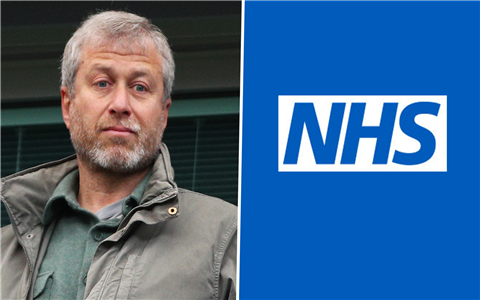
发布时间:2020-11-02
Future is Now《传承宝典》39
——积极肩负家族财富的责任(上)
声明
本文内容来自Stonehage Fleming,由雷梭勒家族办公室编译整理,版权归原作者所有
1. 社会和财富之间的关系是非常复杂的。社会关系良好的人若拥有财富,便能收获一切——高涨的人气、漂亮的衣服、洁白的牙齿、帅气的正手球、放松的时间、假期、美貌、健身、美酒、艺术、礼品数不胜数。但是最重要的是,财富会带来影响力以及社会中常见的权利分配不平衡的问题,或者再退一步,是财富导致大家产生了这样的想法。所以当我们谈论财富与责任的关系时,我们往往指的是财富的影响力和谨慎支配自己影响力的责任。全球新冠疫情持续冲击着社会和经济的发展,而对于富裕家庭来说,这也是个非常重要的时期,有机会去承担和履行责任、展现领导力的时期,不仅有利于全球各地区发展,家族本身也能从中受益匪浅。

责任与名誉
美国实业家、慈善家安德鲁·卡内基在其1889年的文章《财富的福音》中提到,他看见白手起家的富人阶层逐渐壮大,但是对于社会的责任却逐渐缩水,财富浪费情况非常严重。他在文章中写道:“如果一个家庭因其外在而出名,比如装修、摆设、豪华的家具或肆意挥金包装自己,而这样的现象刚好是这个家庭最突出的特点,那么我们就不难看出这个家庭有怎样的本质与文化了。” 卡内基的表述直言不讳,也确实说中了要点。活在财富及其荫蔽下的集体或个人若不对社会有任何回馈,社会群众会很难接受。当然,有时人们也会经常热衷于批判富人的行为都是自私的,而忽略了也有很多富裕家庭确实为社会作出了贡献。在新冠疫情爆发后,英国家用设备制造商戴森的响应非常迅速,根据英国呼吸机行动联盟的要求,赶制合规的呼吸机,帮助英国国家医疗服务体系(NHS)救治更多病人。早在2002年公司创始人James Dyson就创建了慈善基金会,疫情下也投入大量资金支持医学研究,并承诺以个人名义投入了数百万英镑资助呼吸机项目。但是这件事的报道热度远远比不上他在去年决定将Dyson总部从英国迁至新加坡这件事来得轰动。很多媒体对其行为进行了批判,《每日镜报》公开谴责“James Dyson在新加坡的4400万英镑公寓是虚伪的脱欧派为总部迁出英国而做出的铺垫”。不论是企业家、政治家、教师、商业领袖、宗教领袖还是知名人士,社会希望拥有财富和影响力的这群人能够考虑到大众的利益,善意行事,而非滥用财权,能够意识到有时尽管做了善事却很难被民众认可。富裕阶层的所为或所不为,都与其名誉紧紧相连。

在过去的十年间,富裕阶层面临越来越大的名誉风险,这背后有两个主要原因。第一,政治压力、监管压力以及越来越重的社会压力要求富裕阶层的经济活动透明化,这意味着全方位的严密关注,比如他们的行为是否与其财富地位和影响力相匹配。第二是社交媒体在我们生活中扮演着越来越重要的角色,这样的环境下,富裕阶层家庭成员的行为举止难免会被网友时刻关注,被批判作出了(自认为)不合时宜的举动。因此,很明显公众对于富裕阶层需要有所担当的理解已经不局限于捐款这么简单。公众社会期望富裕阶层在享受财富福利的同时也能保持正直,坚持资本的四大支柱中一贯的原则,始终考虑社会广大福利,即金融资本、文化资本、社会资本与智力资本。

责任与文化资本
一个家族的文化可以体现在确立共同目标或规范家庭成员行为的价值观上,包括每个人如何安排自己的生活、如何开展商业、如何对待他人等。这些文化价值观就是家庭对待社会责任很直接的态度。在家族文化中注入社会责任感,可以让家庭成员避免产生家族财富与社会的距离感,意识到自己需承担社会责任。个人行为对社会的责任需要考虑到普通民众对于不同生活方式的敏感性。新冠疫情之下,已经出现了很多富裕阶层有责任有担当的案例。今年3月,切尔西足球俱乐部作为一个私人俱乐部,免费开放斯坦福桥球场的千禧酒店接待NHS医护人员。无独有偶,英国足球评论员、前曼联后卫Gary Neville也开放了与前队友共同经营的位于曼彻斯特的证券交易所酒店以及老特拉福德球场的足球酒店。

同期,意大利家族制药企业巨头美纳里尼集团将其位于佛罗里达的部分厂房用于生产消毒凝胶,并免费捐献给医院和医疗机构。这样的案例全球各地时有出现。但是危机当前,也有部分政客、企业或高净值家庭表现出责不对位的行为。其中有些较为熟知的情况,比如部分非必要零售行业试图说服政府,在疫情期间开放店铺营业,声称自己提供的是“必要服务”。还有部分地区的企业直接要求员工无薪休假或者要求政府补贴,毫不动用家族企业所有人的资产。共同决定家族财富目的的过程中需要理清家族的每一个行动,自然而然地达成家族成员对于责任感的共识。形成共识后,有利于富裕家族减轻因其中某个家族成员作出不当行为后对于家族名誉的负面影响。只有当家族的责任在每位成员身上体现时,民众才会真正信任这个家族。制定家族宪章的过程可以让家族成员以较为正式的方式表达其观点,共同商议、讨论并达成共识。

Original English Texts
EMBRACING THE RESPONSIBILITIES OF FAMILY WEALTH
Society’s relationship with wealth is complicated. For those who have it, wealth affords many things – you can buy popularity, elegant clothes, white teeth, a stylish forehand, time to relax, holidays, beauty, fitness, fine wine, art, gifts and much more besides. More important than all of these though, wealth brings influence and – almost inevitably – results in the uneven distribution of power within communities, or at least, the perception that this is the case. When we talk about the relationship between being wealthy and having responsibilities, therefore, we are talking about the influence that wealth can bring and the responsibility of wielding that influence conscientiously.
Following the continuing social and economic damage wreaked by the Covid-19 pandemic around the world, now is an important time for wealthy families. They have the opportunity to acknowledge and act on their responsibilities and demonstrate leadership. Not only will this help societies around the world but it will also be of great potential benefit to the families themselves.
Responsibility and reputation
In his 1889 essay, ‘The Gospel of Wealth’, American industrialist and philanthropist, Andrew Carnegie, described what he saw as the budding upper class of self-made rich shirking their responsibilities to society and wasting their fortunes. “If any family be chiefly known for display, for extravagance in home, table or equipage, for enormous sums ostentatiously spent in any form upon itself – if these be its chief distinctions we have no difficulty in estimating its nature or culture”, he wrote.
For all his rather outspoken moralising, Carnegie had a point. Society is uncomfortable with the idea of people or organisations who enjoy the great advantages of wealth yet don’t give enough in return. Indeed, so fervent is this instinct to reproach the wealthy for acting in what appears to be self-interest, that the good that many families do is often overlooked. After the outbreak of Covid-19, British household appliance manufacturer, Dyson, urgently began developing devices in response to the Government’s Ventilator Challenge UK. The aim was to boost the number of ventilators made, assisting the National Health Service (NHS) to deliver lifesaving treatments.
Company founder, Sir James Dyson, who set up a charitable foundation in 2002 that makes significant investments to support the advancement of medical research, undertook to fund the ventilator project himself at a cost of many millions of pounds. This episode went largely underreported in comparison to his decision the previous year to move Dyson headquarters out of the UK to Singapore. “James Dyson’s £44m Singapore flat as ‘hypocrite’ Brexiteer prepares for HQ move”, decried the Daily Mirror newspaper, among his many critics. Society expects people with wealth and influence – be they entrepreneurs, politicians, teachers, business heads, religious leaders or celebrities – not to abuse it and to act in good faith for the wider benefit of others – even if it doesn’t always credit them when they do. Their doing, or not doing so is linked indelibly to their reputation.
Reputational risk has increased significantly for wealthy families over the last decade or so. There are two main reasons for this. Firstly, political, regulatory and – increasingly – social pressure on the wealthy to conduct their financial affairs more transparently has meant growing scrutiny from all angles. This includes whether or not they behave responsibly with their wealth and influence. The second reason is the growing role that social media plays in the way we live our lives. It has made it inevitable that the media and social network users are apt to seize on any action by a member of a prominent family that is irresponsible (or deemed irresponsible). It is clear, therefore, that the expectation for wealthy families to act responsibly stretches far beyond being generous with money. Society expects those who have the advantages of wealth to act with integrity and consistency across all of the Four Pillars of Capital to the greater good. That is, not only their financial capital, but cultural, social and intellectual capital too.
Responsibility and Cultural Capital
A family’s culture can be defined by its collective perspective and the values that define the way its members behave. This includes how they live their lives, conduct business and treat others. The expression of these cultural values is a clear demonstration of a family’s attitude towards responsibility. By engendering a culture of responsibility, families can help avoid the perception that their wealth puts a distance between them and the rest of society – that they may be ‘out of touch’. Being responsible in one’s behaviour towards others includes understanding the sensitivities around the different ways they live.
The impact of the Covid-19 pandemic has provided many outstanding examples of generosity and responsible behaviour among the world’s wealthy. In March, privately owned Chelsea Football Club offered the Millennium Hotel at their Stamford Bridge ground as free accommodation to NHS staff. A similar initiative was taken by football pundit and ex-Manchester United defender, Gary Neville, who, together with former team mates, co-owns the Stock Exchange Hotel in Manchester city centre and Hotel Football at Old Trafford.Around the same time, family-owned Italian pharmaceuticals giant, Menarini Group, converted part of its production plant in Florence to manufacture disinfectant gel to donate to hospitals and healthcare organisations. There are many similar examples around the world.
Unfortunately, the crisis has also revealed many instances where politicians, corporations and high net worth families have behaved in a manner inconsistent with the onus that comes with their positions. High profile cases include non-essential retail chains lobbying the government to keep shops open during lockdown, arguing they were an ‘essential service’. Elsewhere, businesses immediately sought to place staff on furlough or unpaid leave, or claim government grants, notwithstanding the wealth of the family owners. Deciding together what the purpose of the family wealth is should flow through everything a family does and will naturally move it towards a collective sense of accountability. This shared understanding will go some way to minimising the risk that certain behaviours undermine a family’s credibility. When a family acts as one in a way that reflects their sense of responsibility, it lends authenticity to their actions. The process of drawing up a family constitution is one way a family can discuss, agree and articulate their values into a formal statement of their culture.
该文章转载自雷梭勒家族办公室,如有侵权,敬请告知删除。
Sooswiss为您提供
瑞士方向私人管家式的定制服务:
1)家族传承 2)财富管理 3)瑞士投资
4)居留计划 5)税务优化 6)家族治理
更多资讯请登录网站 www.sooswiss.com
